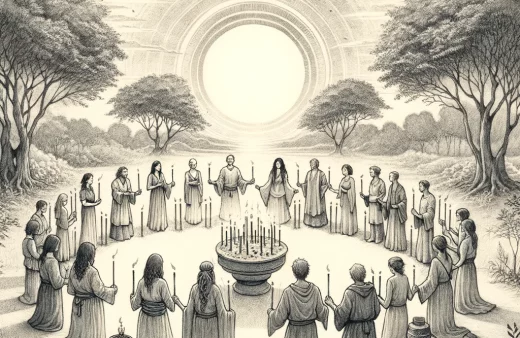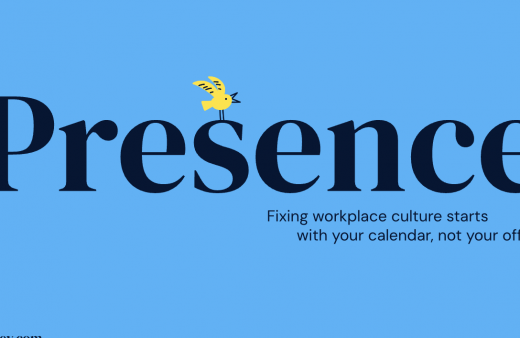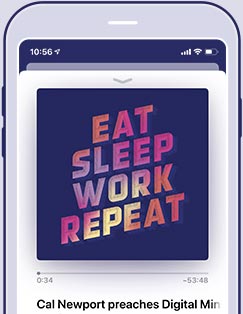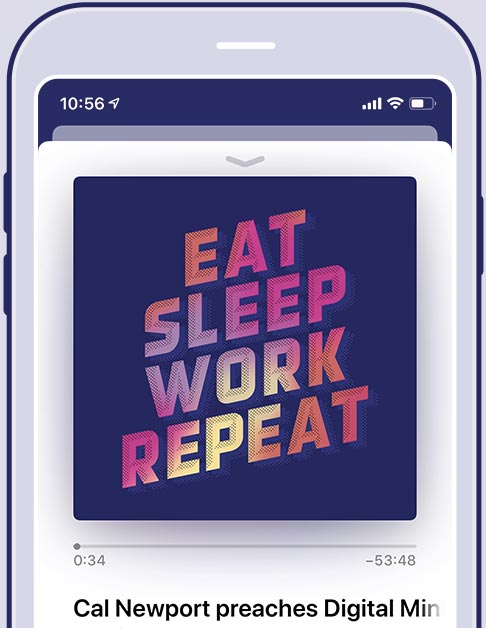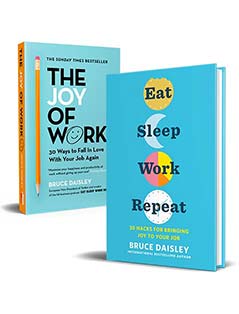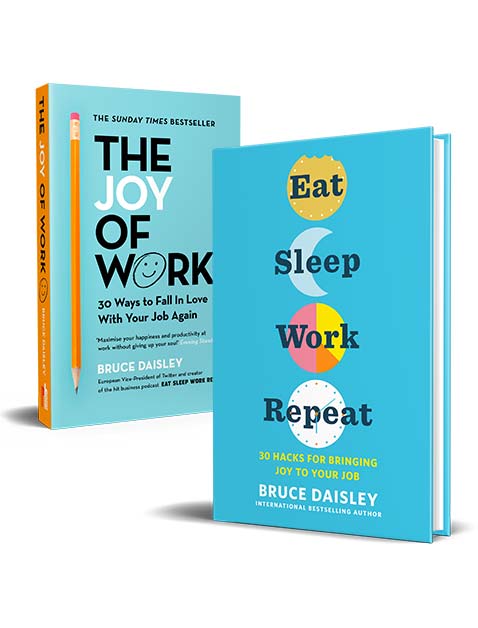Diversity Deception
Featuring Dan Lyons – author of Disrupted – and Dara Nasr (MD of Twitter UK) Dan Lyons – Disrupted: My Misadventure in the Start-up Bubble is available now. We’re all busy, so I enjoyed the audiobook version. You can revisit the Secret Diary of Steve Jobs Here.
Dan Lyons transcript: Just out of curiosity and we’re going to go on to talk about your experiences working in a tech company. But before we start I was just fascinated to just briefly cover the Fake Steve Jobs thing. I remember Fake Steve Jobs when it was happening but just reading through the book and recollecting on the stories of him hanging out with Bono and doing peyote and fake calling restaurants. How did you come to find yourself doing that?
DAN LYONS: Very much by accident. I really wanted to just learn how to blog. I thought I really wanted to learn about online publishing HTML. Literally just how to do things online because at Forbes working in print we were very isolated from the whole production process. Even if our stories went online we just wrote them and sent them over and someone else took care of it. And I was very curious about blogging. Blogging was this hot new thing. And you know and I started a whole bunch of blogs on different platforms just to see how does Typepad compare to WordPress compare to Blogger. One day I had this random idea of what would happen if you had a CEO who was blogging but who was horrible. And you couldn’t stop him. Like the PR people couldn’t… because there’s the Robert Scoble idea of Naked Conversations and ‘every CEO’s is going to have a blog’ and it would be great. And I remember thinking at the time ‘no that would be horrible’. And the few CEOs I’ve met I think if you could if you got them a little drunk and had them just home blogging it would be you’d be appalled by the kind of sociopaths you’re dealing with. And so I thought wouldn’t that be funny. And I used to read Private Eye a lot. And I remember they always used to do the diary of someone I thought ‘oh a blog is kind of a diary. What if you did that?’ And so that’s why I called it The Secret Diary of Steve Jobs because I think Private Eye always calls it The Secret Diary of John Major remember those? Yeah. I always thought they really funny. But I didn’t intend to continue with it, I just thought it was something to do for a few weeks and then people started reading it. And it took on a life of its own. And I sort of realised very accidentally this thing was taking off. And it was a way to write about the tech industry. First it was sort of just a few little jokes about Steve Jobs. And then I realised ‘well what am I going to write about every day if I’m going to keep doing this?’ And I thought ‘what if Steve Jobs was opining on the tech industry’ so it was a way to cover the industry as a journalist and to say things that I wished I could write in my Forbes articles but I couldn’t. But put it through the voice of Jobs so I had to be filtered, it had to be believable that Jobs might actually think X but it wasn’t too hard to imagine how he might think. I think some things I got things wildly wrong. There was another guy at Forbes. He and I had both had this idea to try to do a Daily Show of tech. Do what Jon Stewart did with politics but about tech. But nobody would ever let us do it. If you’ve been in the tech industry for a long time, you’re around it enough you start thinking there are so many absurd things about this industry. And yet the coverage is all so straight and so boring. Wouldn’t it be fun to do that. Yeah that was that was the impetus for that. It was just a way to write about tech in a funny way. Of course now there’s a lot of that. But at the time there wasn’t a lot.
I absolutely loved your book and I think the reason why I loved it is because it’s so rare that you read something that’s so savage and satirises what you see. I compared it to David Eggers The Circle if you’ve read. Which is quite gentle. Whereas this names the company that you worked and satirises them to an extraordinary extent. Did you feel any anxiety being as honest as you are. I mean you document the troubles that you had at the end.
DAN LYONS: Oh yeah I had a lot of anxiety in fact I thought maybe there’s a novel in this. Maybe that would be the way to write it. I have not read that Dave Eggers book and a lot of people have mentioned to me and I know I should. I had a lot of anxiety writing the book because I thought there might be some backlash. And obviously there was. I ended up getting hacked. And I don’t even know what happened because the company won’t say but there was an FBI investigation it got all very scary for a while. In the end I kind of felt it worked better being a real story, being a nonfiction book it actually worked using my name and saying this is really what I went through.
Do you want to briefly your experience for anyone who’s not read it. The experience of a writer. A career in writing in publications like Newsweek and you find yourself in a tech – an East Coast – but a tech startup.
DAN LYONS: Yeah and I was a tech journalist for a long time and the thing that forced my hand is I got laid off at Newsweek and so I found myself trying to either find another journalism job or maybe crossover and work in tech – which is something I had thought about for a long time while I was covering tech. I think a lot of people who cover technology companies have this fantasy of what must it be like to go behind the curtain and and just be in one of these companies. I suppose sportswriters maybe have the same fantasy ‘wouldn’t it be great to play for the Red Sox?’ But you know you could never play for the Red Sox but when you’re covering Google or IBM you realise ‘I could maybe do something here’. It’s not impossible and everybody there seems to be having so much more fun than you are as a journalist the people in – especially successful – tech companies. you also don’t realise (I think I didn’t realise as a journalist) you don’t see a lot of the really horrible failing ones because you never write about them which is actually 99 percent of tech companies are the ones that just completely flounder and go out of business. So the ones you are writing about are the ones that are the rocket ships that are taking off. When visit Google as an outsider and you walk around that campus you just think ‘this is like Disneyland’. This must be amazing to work here. You don’t really feel that way walking around HP. I don’t think anybody walks around HP going ‘oh wouldn’t this be magical’. Or EMC. I had this fantasy and so I started looking for a job in tech. it happened to be the time too when tech companies were all hiring journalists to do this sort of brand journalism or corporate journalism. And I thought ‘well OK it’ll still be half a loaf, I’ll still be kind of a journalist but a different company will be signing my paycheck. But I’ll still be independent in writing whatever I want and I’ll be writing this blog about business’. I went to work at a company called HubSpot which is a very small startup pre IPO but but doing well. The kind of company that’s growing really fast. I thought well this will be fun I’ll go for the ride and see what an IPO is like from the inside as a company goes public. And then got in there and realised that I really didn’t fit and culturally just was really bad fit. I overestimated my ability to adapt. I thought I could do this. I fairly quickly realised that wasn’t going to happen. I was just a bad fit. I stuck it out stubbornly saying ‘I’m going to make this work, I’m going to carve out my place here’. And it just kept getting worse and worse. The book is a comedy of errors. I was twice the age of everyone there. That was another problem. So I never felt old before suddenly I was very much aware of my age in a way I’d never been before. I just felt very different from everybody else. And it was a place where there almost was zero cynicism and I’ve never been in a place where really there was just a complete lack of cynicism.
There’s one amazing scene that I loved the way. You’re given the four archetypes, four personality types. The robot man, you start riffing. It just seems remarkably humourless as a place as much as anything.
DAN LYONS: I think people were afraid to laugh. Yes, we did this Disk Training which is sort of like Meyers-Briggs. And when we went through the training where you get assessed and you’re either a D, an I, an S or a C – or some combination of those. It’s a pie chart so you might be a D with a little bit of I. It seems obviously ridiculous and hokey and pointless. I think a roomful of journalists either wouldn’t put up with it or would really do it under duress and would be making fun of it the whole time. You do an online test and then you go show up one day in a room full of people and you get your little packet that tells you what you are. And you’re dying to know what you are. We had to guess what we thought we were and then open our packet and ‘aha!’. And and then we had to watch these videos of different personality types to learn. The basic premise was a D and a C might not relate very well so I know you’re a C and I’m a D then we should each know each other’s are. So then I know how to talk to you and you know how to talk to me. And there was one type I can’t remember was it that was essentially the Robot Man. Who would just do exactly what they were told. Nothing more nothing less. And so in the corporate videos they made these videos of these people talking and they were actors. Really bad actors. With a really bad script reading. This guy gave this thing about [robot voice] ‘I do exactly what I’m told’. If you said to him ‘where’s that report?’ And he said ‘you didn’t tell me to give it to you, I told you I’d have it finished by Friday’. So they went around and asked us ‘which one did you like the least?’. I said the Robot Man.And they said why. And I said ‘I didn’t like his moustache’. And then he laughed. I said ‘you know just the way he looked, maybe it’s the actor they hired’. And still nobody laughed. And then I say ‘Actually I think if I had to work with him I think I’d want to strangle him. I think I would literally put my hands around his throat. Like how did you end up in this company? How did how did this company hire a robot? This is a start up’. And the woman got more and more ill at ease. The woman running the training said ‘I think I know what you mean. You mean that you would be frustrated and it would be difficult for you to talk to him, wouldn’t it. And I said ‘no no no I mean literally I would strangle him I think I really would kill him with my bare hands’ and and still nobody laughed and everybody kind of looked around like ‘oh there’s a crazy man in the room’. And she said ‘well you know some people in this room are C types you’re not going to strangle any of us are you? hahaha’. ‘Of course I’m not going to strangle you.’ Then there’s just this awkward silence and it just got very uncomfortable. And finally it was over and I sort of apologised afterwards. But they were kind of mad that I had made fun of the whole thing. That was a moment when I realised I was not in Kansas anymore. I was not really where I belong.
And it’s you feeling overall that the experience you have was an environment that didn’t want diversity. They talked about diversity, because they perceive their success comes from the way they’ve done things to date. There’s stories of people doing pushups in meeting rooms and this locker room bro culture. I was just interested whether you felt like the company was trying to assimilate you and bring you in and experience diversity.
Well the other question has I have I couldn’t understand why they had hired me like. Because I got there and realised everybody else was under 30. Really hardly anybody over the age of 30. I wastwice the age of everyone there. And there were no other people. There was one guy in the entire company of 500 people. I came to think there’s this idea of culture fit that that was very big there. They said ‘we like to hire people that would like to go and have a beer with after work’. It’s really important to fit in here. Being a fit is a big thing here. I came to think that was a euphemism for a lack of diversity. I sort of went into a startup land thinking of it as an ecosystem. Thinking the model was going to be very progressive, very diverse, very cool hip and lots of different people. It’ll be great. Then I got in and found out not only were there no people my age and that was on purpose. They were intentionally only hiring people who were very very young. It was also a lack of diversity along the lines of race and gender. Gender in the sense that there were a lot of women but none of them in top roles. But it was an incredibly white place and all of sort of one kind of white people. It was very important to go along. So there wasn’t much friction and dissent at all. And I think that was part of the problem and I think that happens a lot in startups that it’s very important to buy into the vision and not dissent. If you’re a dissenter you sort of get pushed out which ends up being a problem ultimately.
There’s the guy who carries the teddy bear and there’s a series of odd things. DAN LYONS: And nobody laughs. ot only does the founder bring a teddy bear. And says I think this is great and tell everybody why this a great idea. Nobody makes fun of him. That was what was funny to me. In any organisation I’d been in before I think some of us would be making fun of that.
So it’s a time change? Because British businesses I think humour appears to be part of the workplace. Whereas the painting you create here is that a lot of really junior people, first jobbers quite often. Someone’s your manager, you asked what their last job was and their baffled because it’s only college. That lack of humourseems to be an extraordinary thing. What are the cultures that you’ve enjoyed working in? What’s the difference?
DAN LYONS: I think partly it’s an American thing. My best friend back home in the States is an English guy and I spent enough time here and in Ireland. I just have a hard time imagining that any of this could happen in England. Because if you look at English comedies and TV shows, I mean there’s just a much deeper level of cynicism here and piss taking. I think that level of earnestness and lack of cynicism is a uniquely American thing. Maybe not but I think it is. And I was always in newsrooms which are very cynical places even. I mean to the extent where journalists are very cynical about the outside world. We have to be. Anything any PR person says to you, you immediately think it is a lie. And or any corporate person. Or you start trying to poke holes in it. But even in our own company at Newsweek. We were in a death spiral. And we’d have these meetings where they just laid off half the staff and then the remainder of the staff would get together. The boss would get up and say ‘Look things are great, we did just cut half the staff. There might be another cut but it won’t be more than 15 percent. And but things are good. And yes we did just leave our headquarters into a much smaller space. But things are good’. And we’d all sit there and nod our heads and then go out and say ‘Well that was bullshit’. But we knew that the guy had to get up and say that or this woman had to get up and say that and rally the troops. But at the same time and we had to nod our heads. But then we kind of all would go and sit in our offices and talk about how grim it was. So I just never been in a place where there was no cynicism. It was it was amazing to me it really was. It was very culty. I read Lawrence Wright’s book about Scientology just as I was sharing in this job. And it was a little bit like that. You realise there’s people inside Scientology who really don’t understand why people criticise it. ‘Why do you hate Scientology? It’s so great we do such good things for people’. It was amazing in that regard. Really amazing.
Do you think the experience would have been different it had the company been doing incredibly well?
DAN LYONS: Well they were doing well I mean they’re growing really fast and they went public. The stock has gone way up. They’ve never made any money. But in a way they were doing well. That the other thing it made me think maybe I’m crazy because whatever they’re doing seems to be working. So they weren’t they weren’t going out of business. They almost ran out of money. They were burning through money really really badly and they went public having borrowed money to keep the lights on. They came as close as you can get to running out of money. But they managed to pull it off and they raised a bunch of money in an IPO and they’re you know still going. So yeah that’s that’s the one big caveat that makes me wonder if maybe I’m just a dinosaur and I’m stuck in the 20th century. Maybe everybody brings a teddy bear to work as that is the way to go and I’m just the old guy who thinks bringing a teddy bear is stupid you know. So it’s another thing I wrestle with in the book, am I out of step? How I just lost it. They would say yes.
I guess it combines with you I saw a quote from Marissa Mayer a couple of weeks ago saying ‘the reason why Google is a success is we worked 130 hours a week’. There’s quotes by other tech heroes saying that younger people are better than old people. It does add to that sense that diversity doesn’t necessarily feel like what they’re after.
DAN LYONS: No I don’t think so at all. They put out these reports every year with these statistics. And every year the headline is always ‘this year’s diversity report shows little progress’. But I think the VCs especially would love it if all of you young 23 year olds would come in here and work 130 hours a week for us. That would be great. Please do that. You know there’s a reason for that. They get rich. But maybe there’s something to that. I mean I’m not sure if Marissa, well I wouldn’t argue with her. She knows what made Google great.
But it’s just hard to see that accommodating a family. Or hard to see that accommodating living remotely. Where you’ve got to travel home.
DAN LYONS: And I’ve heard people say that. It’s funny we look back on the old days of the Mad Men era when women couldn’t get hired because ‘you might get pregnant’ or we won’t hire married women. We scoff at that as being an old fashioned way but it happens today where women are kind of told that you know if you have a kid, don’t come back. Or if you’re pregnant you get fired. Or or women don’t get jobs because they’re afraid they’re going to want to have kids. And I think that kind of retrograde thinking still applies in Silicon Valley. I had someone tell me about HubSpot where I worked in the sales department they were on monthly quotas instead of quarterly and it was a really gruelling environment. It was just very hard to make your number every quarter. A woman said to me ‘Look around you there’s no one here that has kids. Nobody can survive this for very long. Nobody can survive this very long you do it for a few years and you’re burnt out. But you know you can’t have a family and do this job at the same time’. That is an ethos that that I’m not sure if that’s sustainable. But maybe it is. Maybe you can just every couple of years hire a new crop of young people right out of college. And but I don’t know what happens to the 40 year old and older. Since my book came out I get emailed every day from people who either have aged out or are worried about it. Starting at like 30, 32. Worried about being too old to work in Silicon Valley. It’s a crazy situation.
Which is remarkable if you compare it to the medical profession or the legal profession where actually you’re just getting into the prime of your career in those ages.
DAN LYONS: Yeah. Which I think is part of what puts the lie to this idea. Part of the argument for young people in tech is that ‘older people you just don’t get it’, ‘it moves so fast and it changes so much and it’s so challenging that you just need this special young brain with our our digital native DNA’. But for example my sister in law is a surgeon at Stanford. She’s early 40s but really didn’t begin her career – because she’s a colorectal surgeon so she had to do specialised fellowships and trainings – it was in her late 30s really before she began really practicing. And I mean she operates very complicated robotic surgery devices and that require constant learning. The work she does is both physically and intellectually very very rigorous work and and dynamic as the science continues to evolve. Nobody says to her well ’43! Clock’s ticking man! We really got to give this job to a 23 year old because you just don’t have the intellectual thing’. In most fields it’s ridiculous to think that people over 40 can’t do it, but yet tech… I think it’s a fake argument. It’s cheap labour. Part of it is you can hire young people and work them really hard. They don’t have any life outside of this place so they don’t have any expectations of having any time off. of other worldly sense and it doesn’t feel like real life. I wonder the same at Facebook that you go to their campuses with Silicon Valley or they’re writing cruize to go on these road trips and they would hostessing. I mean it’s incredible. Yeah but I still love Google in the Android where the angry building was there they’re kept because you can go to any current cafeteria you want it Google I wish you would go to lunch.




